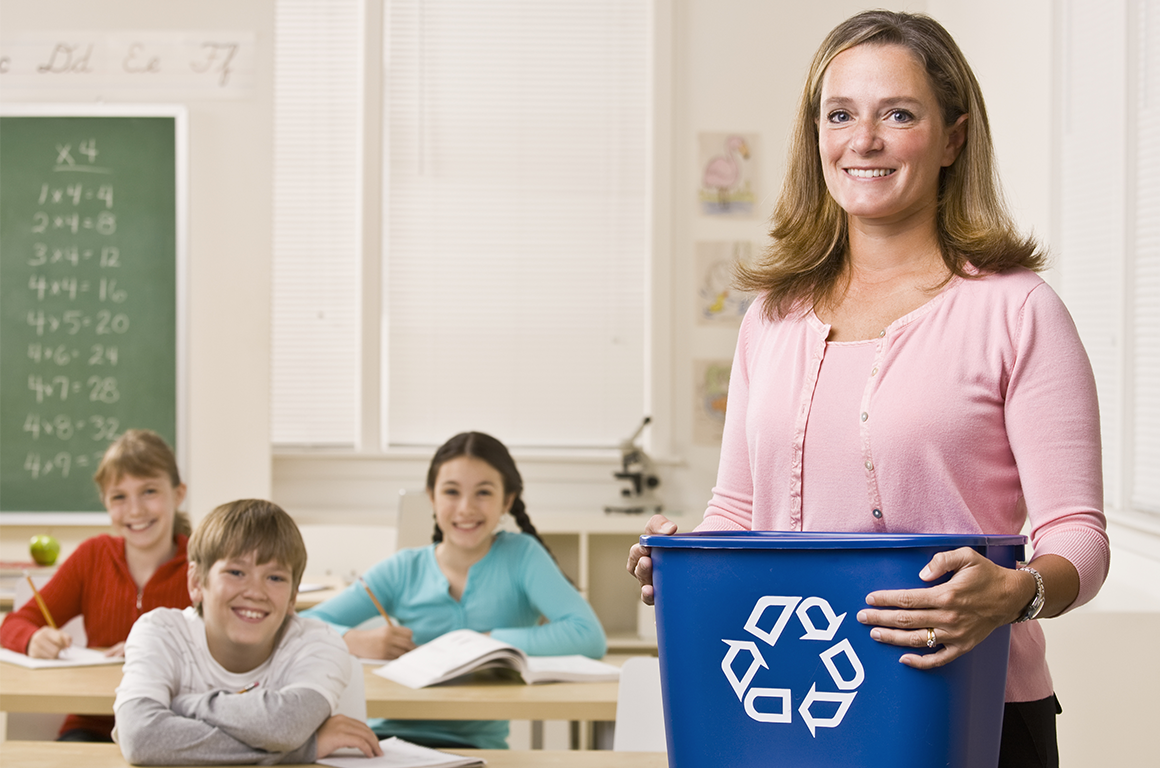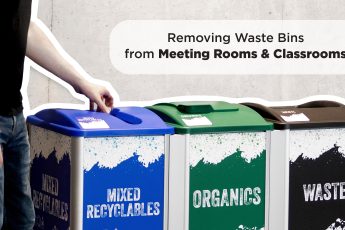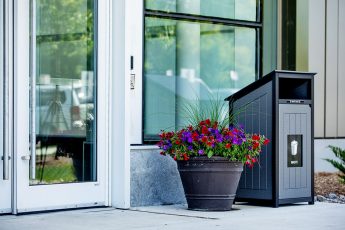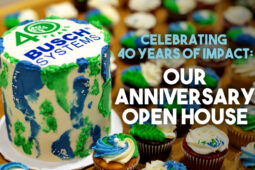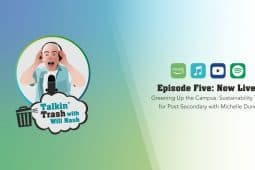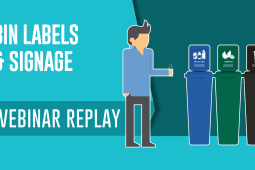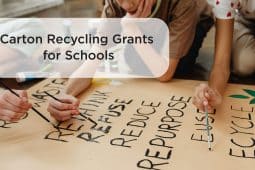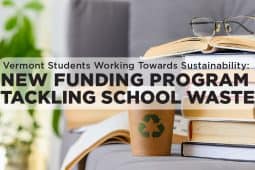9 Best Resources to Help Build an Exceptional School Recycling Program
For more information on how to build an exceptional recycling program for your elementary or secondary school, click here.
Starting a Recycling program for your school is a no-brainer. Elementary & secondary schools have a lot of staff and students that create a high volume of waste, and a large proportion of waste generated from school grounds can be diverted from landfills. Not to mention, developing the next generation of Reducer’s, Re-user’s & Recycler’s is paramount to the continued success of recycling programs across North America. That’s why we’ve compiled the 9 best reads that will help you improve your school’s recycling program!
Standardize your program, add more recycling stations, reduce contamination—these are all the typical phrases you’ll hear in the recycling community about how to improve diversion rates and reduce costs for your elementary or secondary school. Although these practices are tried and true, there are many moving parts to each that makes tackling them successfully a little more difficult—but that’s where you come in!
The team at Busch Systems has put together the following essential list of 9 best resources to help you learn how to run a spectacular school recycling & waste management program. Even better, they’re all free!
If you know of some more resources that can help us further educate, please comment below with your suggestions and we’ll add them to the list. And don’t forget to bookmark this page, so you can refer back to it when you’ve got some more time to brush up on your recycling & waste management skills for your school.
-
- Talking Trash in Tuscon: A Middle School Curriculum Recycling [Guide] ~30 min read. This awesome guide from the City of Tuscon sets out to tackle: increase participation in recycling, reduce recycling contamination, provide engaging activities that meet their Board standards, instill an environmental ethic in students, and to encourage student participation in recycling. Music to our ears! Use this guide to fast track your recycling program!
- How much does your school waste? [Article] ~3 min read. This quick article from RecycleNow is built around the idea that “Before setting up a recycling system it’s a good idea to find out what your school is currently throwing away.” And they’re right! They’ve also included a simple lesson plan for students and a waste audit worksheet. If you’re looking for a quick and easy place to start, this is it!
- What Are School Recycling Programs Teaching Our Kids? [Article] ~10 min read. This fantastic, no-nonsense article from Michele Nestor on Waste360’s website discusses the impact of recycling programs on public school children while discussing the struggles school districts continue to have in promoting green efforts through recycling.
- Refuse (ri-fyooz) Refuse (ref-yoos): A Guide to Waste Reduction in Manitoba Schools [Guide] ~90+ min read. We love this one! This guide was created in order to foster discussions about what you can do in your school division to reduce waste. This guide not only gives direction, but also encourages discussion about the steps taken at Landmark Elementary School (LES) and the resulting 50% Challenge for Waste Reduction undertaken at Hanover School Division (HSD). The guide describes how the actions of students in one school brought about change in an entire school division. It is both a “how-to” and a “why-to” guide since many questions about waste reduction must be addressed in order to make a school-wide or division-wide initiative a success.
- A Guide to Starting a School Compost Program [Pdf] ~25 min read. If your school is like most across the country, recycling has become apart of your culture. Why not take the next steps and start composting? As we continue to mention, setting up a separate stream for organics/compost is the best place to make a large and quick impact on your recycling program. The goal of this manual by Green Mountain Farm to School is to help aid schools to establish a successful composting program providing information, tips and resources!
- Trash Goes To School Produced by Cornell Waste Management Institute [Guide] ~120+ min read. This 1991 guide called Trash Goes to School provides teachers with solid waste background in-formation, activities for K-12 to present a well balanced picture, ideas on how to use solid waste issues in teaching many subjects, including math, science, English, social studies, and home economics, and glossaries appropriate to the grade levels. Obviously there’s some aging going on here, but the key points still ring true. Use this guide as a foundation for building your exceptional school recycling program!
- At-Home Resources: Waste & Recycling [Website] ~90+ min read. EarthGen, formerly Washington Green Schools, has numerous, up-to-date resources for educators, students and even parents – including activities and background information – to use in the classroom or at home on many topic areas such as waste and recycling. By improving recycling and waste management systems, schools can reduce fiscal and environmental costs associated with excessive or improper waste disposal. This action also drives students to make responsible choices and think critically about their relationship with consumption and waste.
- EPA: Reduce, Reuse, Recycle Resources for Students and Educators [Toolkit] ~90+ min read. Included in this toolkit provided by the EPA are resources for students and educators on reducing, reusing, and recycling. There’s a lot of good stuff here!
-
EPA: Reuse + Recycling = Waste Reduction: A Guide for Schools & Groups [Guide] ~90+ min read. Organized groups have a tremendous opportunity to operate waste reduction programs and Increasing the flow of reusable and recyclable materials can even generate extra funds for school departments! This guide provided by the EPA is built around getting you amped-up to make a difference in your school district.
And there you have it! Plenty of resources to get your journey to sustainable waste management started. We’ll continue to update this page as we see more great information come down the pipe. And again, if you think we’ve missed some more resources, feel free to comment below.
Stay tuned!
